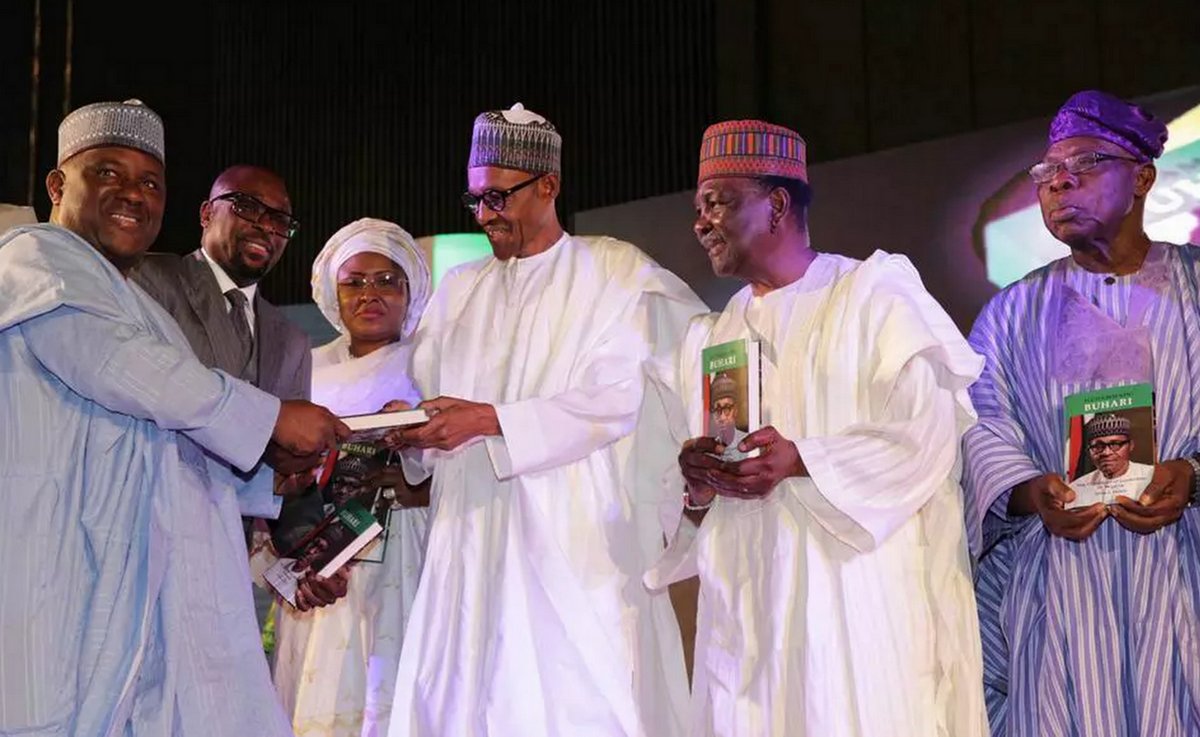‘Tinubu admit Buhari’s slow but steady in his approach to governance’

National leader of the All Progressives Congress (APC), Bola Tinubu says President Muhammadu Buhari is “slow but steady” in his approach to governance “now that he is older and given his experience”.
Tinubu was speaking on Monday during the launch of a book — ‘Muhammadu Buhari: The Challenges of Leadership in Nigeria’, written by John Paden, a professor of international studies — at the International Conference Centre, Abuja.
“During the campaign, he surprised many by his agility and the broad canvas on which he operated,” he said.
“In tracing the evolution of Buhari, the national leader, the author’s assertion that military rule is based on the power its holders can wield, while civilian rule is based on the legitimacy derived from elections, is a point with which I dare not debate.
“Buhari’s career embodies this, hence his transition from being a military ruler to being a civilian leader, who subjected himself to the rigors and uncertainty of elections four times. Thrice he patiently went to court, seeking redress from electoral manipulation.
“The author, quite accurately, remarked on the Buhari victory equation, as flowing from Northern grassroots support and coalition-building with the South West as well as with other tendencies.”
Tinubu noted that Paden, in the book, succinctly explained the transition from the Buhari in uniform to one in civilian garb.
“He notes that in terms of style of leadership, Buhari as a young military head of state was in a hurry,” he said. “However, now that he is older and given his experience, he is ‘slow but steady’ in his approach to governance.”
Tinubu said the choice of Yemi Osinbajo as Buhari’s running mate in the 2015 presidential election proved that the president was not intolerable to religious difference as it was insinuated.
“There was the issue of selecting a running mate and after a careful study and discussion, it was agreed that we should fill the religious balance ticket, given the sensitivity of the moment,” he said.
“Based on this conclusion, the name of a renowned professor, Yemi Osinbajo, the professor of love and former Lagos state attorney-general during my time as governor was proposed and accepted as running mate.
“Osinbajo was also a pastor in the largest church in the country, this for those trying to paint Muhammadu Buhari as intolerant religious leader.”
In retrospect, he regretted the failed merger of the defunct Action Congress of Nigeria (ACN), his party, and the Congress for Progressives Change (CPC), Buhari’s party, saying: “In forming the ‘new’ party, we had three challenges.
“The first was learning the right lessons from the aborted attempt at political cooperation in 2011. Fortunately, both the ACN and CPC regretted our inability to conclude a pact in 2011.
“We agreed that there would be no recrimination over what did not happen before. We agreed there would be an intensified effort to forge the united effort that eluded us in 2011.
“In 2011, both parties wanted cooperation, but became stuck whether that should take the form of an alliance or outright merger. This difference gave rise to another one, regarding how the Vice Presidential candidate, who would run with the Presidential Candidate, Muhammadu Buhari, would be selected.
“Despite numerous good-faiths demonstrated in attempts to resolve these issues, time ran out on finding a solution. In retrospect, we all were perhaps a bit too inflexible and did not realize the extent to which cooperation and flexibility were needed to establish the reform we all wanted.
“The result: each party went its own way in 2011. However, the talks of 2011 would foreshadow the discussions, beginning in 2013, which led to the successful merger forming the APC.”
The book launch had in attendance former presidents, Olusegun Obasanjo and Yakubu Gowon; Mahamadou Issoufou, president of Niger; Idris Derby, president of Chad; and members of the international community.
Today Prof JN Paden, whom I've known for many years,presented his biography of me. I commend his intellectual effort pic.twitter.com/KDC7Q2rS5e
— Muhammadu Buhari (@MBuhari) October 3, 2016









0 Comments